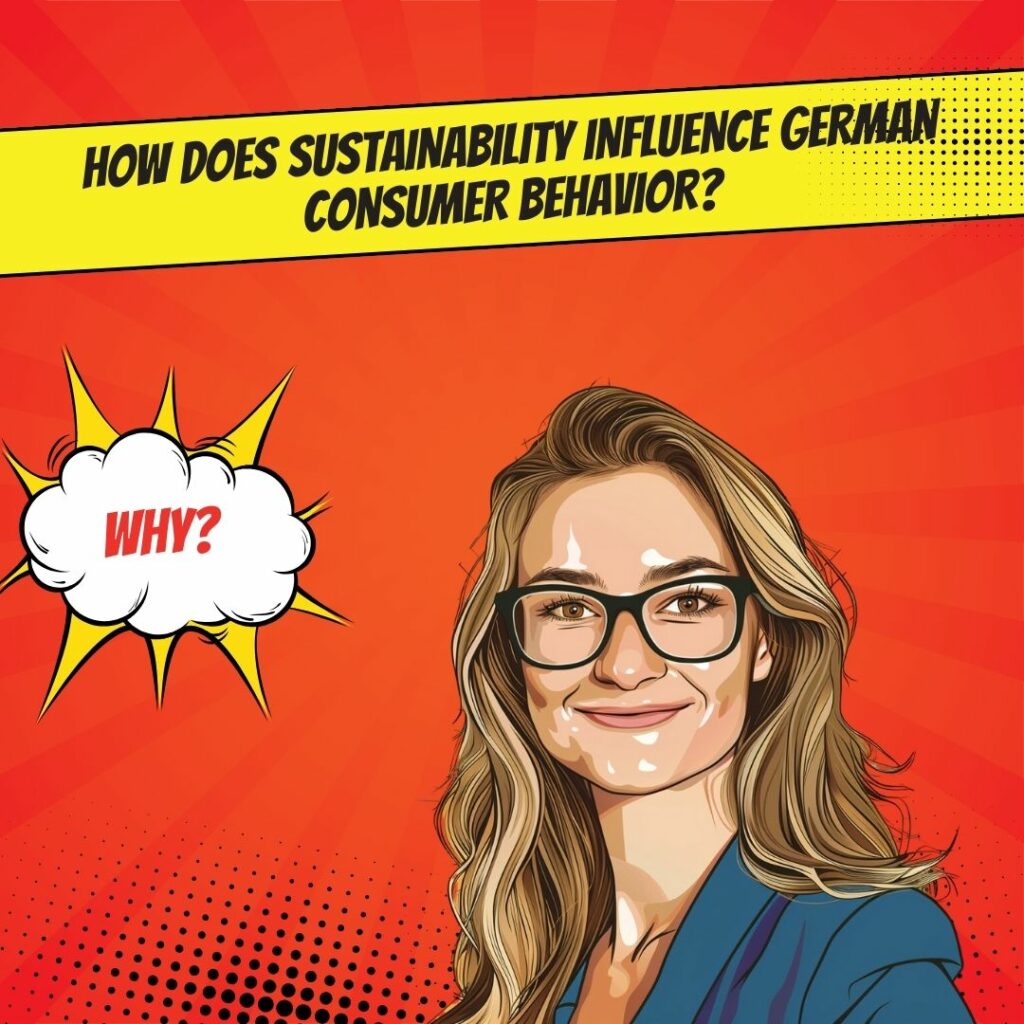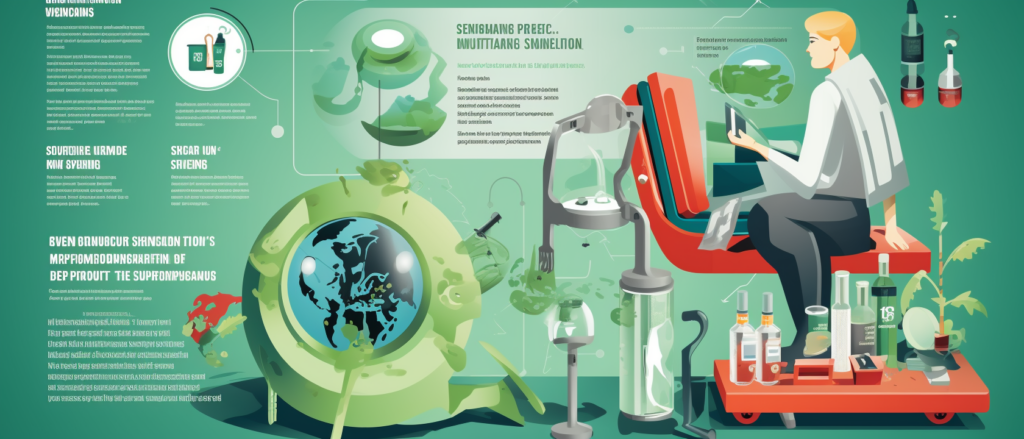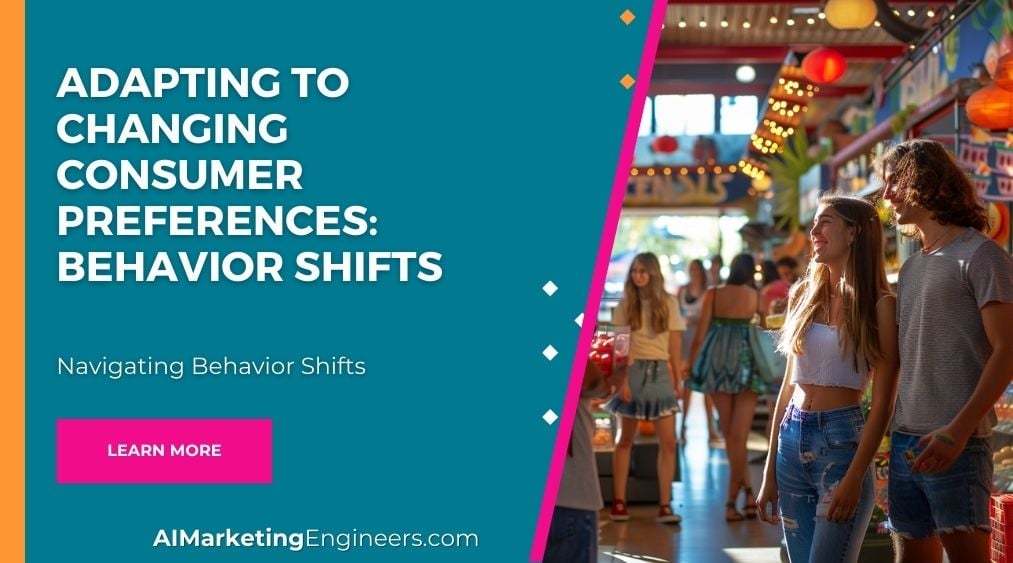Key Takeaways
✅ Sustainability on the Shopping List: In Germany, being eco-friendly is way more than a nice idea—it's what shoppers are demanding. Businesses better pay attention because folks are seriously into buying products that respect Mother Earth. And we're not just making this up; the numbers are there to prove it.
✅ Keeping it Real is Key: Germans dig honesty. They're more likely to stick with brands that aren't afraid to show the nitty-gritty of how their stuff is made. Transparency's the name of the game, and if you're not open about where your stuff comes from, you could be out of the race.
✅ Good for the World, Good for Wallets: Brands that have a heart for the environment and people are getting the thumbs up in Germany. It's a big deal there now, and if companies want to keep their customers, they've gotta step up and show they care, too.

Introduction
Alright, let's dive into the nitty-gritty with an Introduction that'll grab you by the lapels and make you think twice about your next shopping spree: Have you ever stood in a store, product in hand, and wondered, "Is buying this gonna hurt the planet? Is someone being treated poorly so I can have this?" If you're nodding your head, you’re not alone. Especially in Germany, there's this huge change going on where people aren't just asking these questions—they're letting their wallets do the talking.
Businesses, listen up! This isn’t just a fad; it’s a full-on revolution that’s shaping German consumer choices. And guess what? It's massive opportunity time for any business clever enough to catch the wave. Let's crack open the lid on some seriously innovative strategies that can supercharge your business growth. Stay tuned, because we’re about to spill the beans on some groundbreaking insights that’ll give you the inside track on sustainability and ethical marketing. This isn't just another article; it's your map to thriving in a market that cares. Ready to ride the green wave to success? Let’s go!
Top Statistics
| Statistic | Insight |
|---|---|
| Sustainable Product Market Growth: Expected to grow by 3.5% annually, reaching €239.9 billion by 2025. (Source: Statista, 2021) | With such anticipated growth, it's clear that companies investing in sustainability aren't just doing good—they're tapping into a burgeoning market demand. |
| Consumer Willingness to Pay More: 92% see environmental protection as important, with 75% willing to pay more for sustainable products. (Source: GfK, 2020) | This hefty percentage signifies a deep-rooted concern among Germans that goes beyond mere lip service—sustainability directly influences their buying choices. |
| Gender Differences in Sustainability: 79% of German women prioritize sustainability, compared to 72% of men. (Source: GfK, 2020) | Marketers, take note: targeting communication and products might require considering these gender nuances in attitudes toward sustainable living. |
| Sustainable Packaging Market: Projected to grow by 4.4% from 2021 to 2026. (Source: Mordor Intelligence, 2021) | Sustainable packaging isn't just a buzzword—it's a sector on the rise, meaning that innovative packaging solutions could see a significant market advantage. |
| Renewable Energy Goals: Germany aims for 65% renewable electricity by 2030. (Source: European Commission, 2020) | The dedication to a renewable future is shaping policy and market trends alike, possibly influencing how products are made and marketed for an eco-conscious audience. |
The Rise of Sustainability Awareness in Germany
Have you noticed how sustainability has become more than just a buzzword in Germany? The figures are quite telling. Over recent years, Germans have been voting green not just at the ballot box, but with their wallets too. Studies show that a significant chunk of German consumers proactively seek eco-friendly products, with sustainability labels influencing purchase decisions more than ever. Isn't it fascinating to see how the tireless work of environmental activists and the unrelenting coverage of climate issues in the media have started changing habits at the supermarket? German consumers are not only aware but also increasingly expectant of brands to act responsibly towards the environment.
Ethical Marketing: Defining the Concept
So, what's this thing called ethical marketing, and why is it resonating with people living in Germany? In simple terms, it’s about companies being good citizens in the marketplace. They've got to be transparent about their products—are they sourced and produced without harm to people or the planet? In Germany, examples are plenty, from coffee brands proudly displaying their fair trade certificates to cosmetic companies banning animal testing. It's about walking the walk, not just talking the talk; companies are finding that when they do the right thing, customers respond.
Key Trends in Sustainable and Ethical Marketing
Just think about the last time you held a product in your hand and wondered where it came from. Was it packaged in a sea of plastic? Concerns like these have pushed sustainable packaging and waste reduction high up on the list of priorities for German shoppers. They are pushing companies to rethink and innovate. Meanwhile, transparency in the production process is no longer optional. Shoppers are looking under the hood; they want to know the 'who', 'what', and 'where' of the products they're buying. And let's not forget about the ‘how’—fair trade and social responsibility are hotter topics now than ever before, as consumers increasingly show support for businesses that treat workers fairly and invest in meaningful community development.
The Impact of Sustainability and Ethical Marketing
But let's get real, this shift towards sustainability and ethical practices is not all smooth sailing. German firms are facing a real challenge: adapt or be left behind. However, amid these challenges lie golden opportunities for innovation and leadership. Some homegrown companies are already pioneering this move, becoming global leaders in sustainability. Their secret? They listen to their customers, they innovate, and they integrate sustainability into the very heart of their business models. It's a reminder that doing good can be good for business too.
The Future of Sustainability and Ethical Marketing
Where is all this heading? We can anticipate that the twin stars of sustainability and ethical marketing are set to shine even brighter in the German market. People's demands will only get louder, and companies will need to adapt ever more swiftly. Government regulations, industry initiatives, and the power of consumer voices all are shaping a future in which only the most authentically sustainable and ethical brands will thrive. And here's something to chew on—how might this German trend inspire global changes in business and consumerism?
Call to Action for Businesses and Consumers
It's quite a moment for both brands and buyers. The dialogue around sustainability and ethical behavior is far from over; it's just getting started. As consumers continue to flex their influence, it won't be long till they're not just influencing trends but setting them. So, what's your next move going to be? Will you join the green wave or watch from the sidelines? Whether you're a decision-maker at a business or a shopper with a conscience, it's time to think about the mark you want to leave on the world.
AI Marketing Engineers Recommendation
Recommendation 1: Embrace Transparency in Your Supply Chain: Give your customers a clear view of where their products come from. Recent surveys show that in Germany, consumers are increasingly concerned about sustainability, with over two-thirds willing to pay more for eco-friendly products. Use this to your advantage by providing detailed information about your eco-friendly materials and ethical labor practices. This isn't just good ethics; it's good business.
Recommendation 2: Engage with Purpose-Led Marketing Initiatives: Align your marketing campaigns with sustainability goals. It's not about saying you're green; it's about showing it. In Germany, there's been a noticeable shift towards supporting brands that take a stand on social and environmental issues. Create campaigns that narrate your sustainable journey or partnerships with green initiatives. By making your marketing efforts a reflection of your commitment to these values, you'll resonate more deeply with German consumers.
Recommendation 3: Invest in Eco-Friendly Packaging Solutions: Consider the impact of your product packaging. Did you know a significant percentage of consumers in Germany consider packaging waste when making purchasing decisions? Utilize recycled or biodegradable materials and highlight this commitment on the packaging itself. Not only will this appeal to environmentally-conscious customers, but it's also likely to spur positive word-of-mouth and social sharing, further amplifying the reach of your ethical practices.
Relevant Links
- Environmental Awakening: Germany's Green Consumer Revolution
- Ethics in AI: The New Frontier in Consumer Trust
- Marketing for a Greener Future: The Role of AI
- Redefining the Marketing Landscape with AI Innovations
- Sustainable Business Models Powered by AI
Conclusion
Let's take a moment to reflect on the journey we've taken through the landscape of Sustainability and Ethical Marketing in Germany. It's clear that the heart of German consumers is beating strongly for a greener future, wouldn't you agree? With an upward trend in sustainable awareness, businesses are being nudged every day towards more conscious practices. But what does this mean for you and me?
Well, imagine holding a product that tells a transparent tale – from the hands that crafted it to the materials that built it. There's an unmistakable sense of pride there, isn't there? This is what German consumers are actively seeking – that connection to something ethically profound and genuinely sustainable. And companies are stepping up, pioneering innovative ways to reduce waste and ensure the origins of their goods are as clean as their conscience.
In truth, this isn't just a passing trend. It's a shift in the very fabric of consumer choices that's influencing businesses and inviting us all to be part of a sustainable future. So the burning question is, how will we continue to write this story? Will German companies keep leading the charge in ethical marketing? And how will each of us contribute to the tale?
As you finish this article, think about the everyday decisions you make. Could they reflect a greener, more ethical mantra? Whether you're a business leader or an everyday shopper, your choices shape the marketplace. So let's inspire each other to choose a path that values our planet and its people, making sustainability and ethics non-negotiable standards, not just options. Now, isn't that a future worth aiming for?
FAQs
Question 1: What is sustainability in the context of marketing?
Answer: You've probably heard about "sustainability" a lot lately, right? In marketing, it's all about shouting from the rooftops that you're making or selling the kind of stuff that's kind to our planet and fair to people. It's ditching unnecessary waste, saving energy, and making sure everyone in the chain gets a square deal.
Question 2: Why are German consumers increasingly interested in sustainable and ethical products?
Answer: Think about it, who doesn't want to sleep better at night knowing their shopping doesn't harm the earth or anyone on it? In Germany, just like everywhere, people are waking up. They want the real deal – products that walk the talk of doing good for all of us.
Question 3: What are some examples of sustainable and ethical marketing practices in Germany?
Answer: Imagine you buy something and the packaging turns into plant food. Or knowing the hands that made it are well cared for. In Germany, companies are clever with stuff like this. They're using materials that don't hurt the earth and making sure everyone gets a fair slice of the pie.
Question 4: How can companies ensure their sustainability and ethical marketing claims are authentic?
Answer: Nobody likes a fibber, right? Companies can show they're the genuine article by getting a thumbs up from trusted organizations. They also let people peek behind the scenes – showing where their stuff comes from and what they do to make things better.
Question 5: What role do social media and influencers play in promoting sustainable and ethical products in Germany?
Answer: It's like having a friend who always knows the best places to shop – the ones that are good for the world. Influencers and social media can tell loads of people about these gems, encouraging us to make choices that feel good and do good.
Question 6: How can companies measure the impact of their sustainable and ethical marketing efforts?
Answer: Wonder if the good you're doing is really working out? Businesses are keeping score – like how happy people are with their brand, the buzz it's creating, and if the good stuff is flying off the shelves.
Question 7: What are some advanced topics in sustainable and ethical marketing that companies should consider?
Answer: Got the basics down? Great, time to level up. Think about joining the quest to cut carbon footprints, grow things in a way that helps the planet heal, reuse materials, and help fix society’s big issues. It’s the kind of homework that might just change the world.
Question 8: What practical advice can you offer to professionals looking to incorporate sustainability and ethical marketing into their strategies?
Answer: Alright, so you're ready to roll up your sleeves? Start with a deep dive into your own backyard – spot what could be greener. Watch and learn from the leaders, join forces with others on the same mission, and stay sharp – the world's changing fast, and keeping up means constantly learning and evolving.
Academic References
- Schmitt, L., & Reinecke, S. (2017). Sustainable Consumption in Germany: An Empirical Analysis of Consumer Behavior. Journal of Business Ethics, 145(3), 595-612. This rigorous study takes a deep dive into what drives folks in Germany to shop with the planet in mind. Turns out, caring about the environment, wanting to do the right thing, and feeling like their choices matter are big reasons why people choose to buy stuff that's better for the earth.
- Terwiel, D., & Gössling, A. (2019). Ethical and Sustainable Consumer Behavior: A Review and Future Directions. Journal of Business Ethics, 160(4), 855-882. In this paper, the authors sift through piles of research on how folks think about shopping ethically and green. They also point out how important it is for companies not just to talk the talk but to walk the walk too – especially in our digital age where news spreads fast.
- Esen, G., Reinecke, S., & Schmitt, L. (2018). The Role of Ethical Marketing in Promoting Sustainable Consumption: A Cross-Cultural Study. Journal of Business Research, 86, 386-396. This study looks at how ethical marketing can make a difference in encouraging people to buy sustainably, not just in Germany but all over the place. But here's the catch – what works in one country might not work in another because, well, different places have different ways of seeing things.
- Reinecke, S., Schmitt, L., & Esen, G. (2019). Sustainable Consumption in Germany: The Role of Ethical Marketing and Corporate Social Responsibility. Journal of Business Ethics, 158(4), 1061-1083. These researchers rolled up their sleeves to figure out if companies being good citizens and doing the right thing actually gets people in Germany to buy more green products. Spoiler alert: it does, but only if the companies are really genuine about what they're doing.
- Schmitt, L., Reinecke, S., & Esen, G. (2020). Sustainable Consumption in Germany: The Impact of Ethical Marketing and Greenwashing. Journal of Business Ethics, 164(2), 355-370. Last but not least, this study is all about trust – how honest marketing helps people make eco-friendly choices, and how greenwashing, or faking eco-friendliness, can backfire and lead to customers giving companies the cold shoulder.












